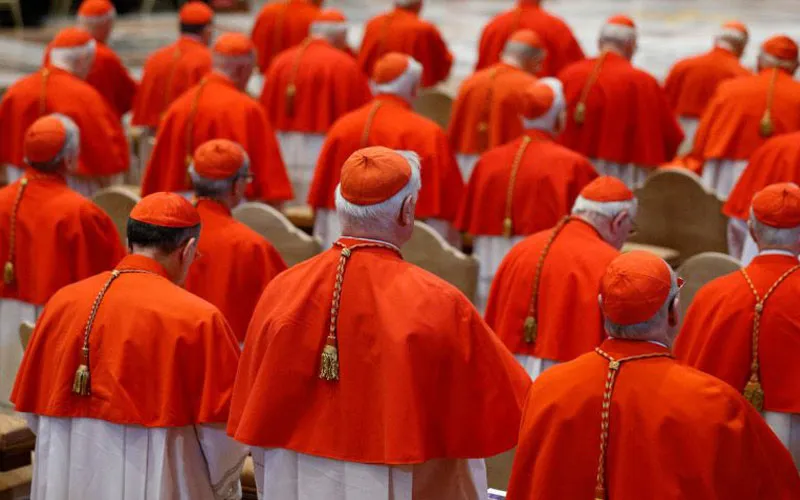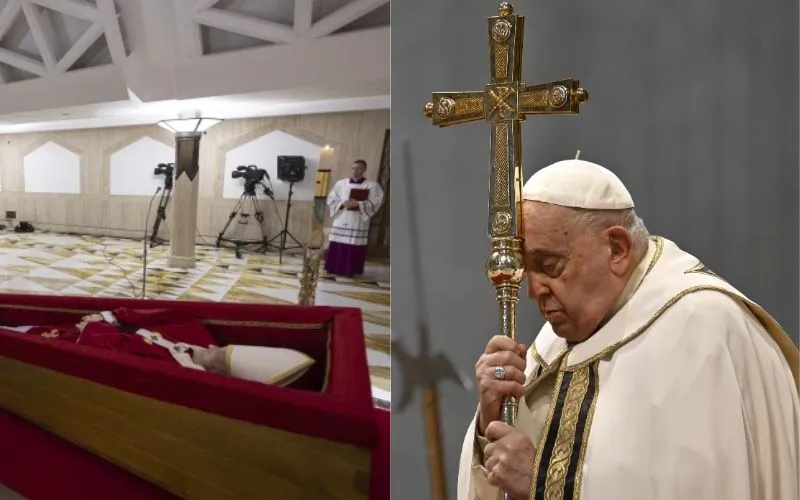Archbishop Cristóbal Lòpez Romero of Rabat, Morocco
Born in 1952 in Spain, he was ordained a priest of Salesians of Don Bosco in 1979.
By virtue of his service in Morocco, and of the good relations he developed with the Christian and Muslim religious leaders present in the country, Pope Francis appointed him Archbishop of Rabat in 2017.
Upon his nomination as cardinal-elect, Archbishop López Romero wrote on his Facebook page, “I would like every greeting to become a prayer for the Pope, for the Church, for this diocese of Rabat and for my person. I thank Pope Francis for the difference he has shown me and I intend to continue to serve the Church by helping her with everything she needs.”
He reiterated what he explained when he was appointed Bishop saying, “My title and diploma of the highest category is that of being "son of God", saying he obtained it in Baptism.
(Story continues below)
“I am at the top (like most of you); I cannot ascend or be promoted, since more than the son of God one cannot be,” he stated.
Bishop Eugénio Dal Corso of Benguela, Angola
80-year-old Bishop Emeritus Eugénio Dal Corso was given the name "Eugenio" upon birth to honor Pope Pius XII who was elected Pope two months before his birth.
He was ordained a priest of the Congregation of the Poor Servants of Divine Providence in 1963, in Verona (Italy), his homeland.
He later specialized in Dogmatic Theology while doing pastoral work in various parishes in Italy. He was sent as a missionary to Argentina in 1975, where he helped in formation ministry.
In 1986, the leadership of his religious order commissioned him to Angola’s Luanda. In 1991 he was appointed the Provincial Superior of his order in Angola.
Pope John Paul II appointed him the Coadjutor Bishop of Saurimo, Angola in 1995 and became bishop of the same diocese two years later.
In 2008, Pope Benedict XVI named him Bishop of Benguela.
Pope Francis accepted his resignation in 2018 at the age of 78.
Bishop emeritus Dal Corso will become the second Cardinal in the history of the Angolan Church, after D. Alexandre do Nascimento.
Archbishop Michael Louis Fitzgerald, emeritus of Nepte, Tunisia
Born in Walsall, United Kingdom, in 1937 in a Roman Catholic family of Irish descent, Archbishop Fitzgerald is a Missionary of Africa (White Father).
With the desire to become a priest and a missionary, he joined the junior seminary of the society of Missionaries of Africa (White Fathers) at the early age of 12, first in Scotland, then in the South of England.
He entered the Society of the Missionaries of Africa in 1950. He studied philosophy in England and Ireland. He attended his novitiate in the Netherlands and pursued his theological studies in Tunisia, where he began learning Arabic and acquiring some knowledge of Islam.
He was ordained a priest in the Society in 1961. Upon ordination he was sent to Rome to study Dogmatic Theology at the Pontifical Gregorian University. Among his teachers was prominent Jesuit theologian Bernard Lonergan. He completed his doctorate in Theology in 1965 on the missionary intention in the writings of the Latin apologists. In 1987 he was appointed Secretary of the Pontifical Council for Interreligious Dialogue.
He was appointed Titular Bishop of Nepte in 1991 and later Archbishop of the same jurisdiction in 2002.
In 2006, Pope Benedict XVI appointed him as Apostolic Nuncio of Egypt where he remained until he resigned in 2012, after having reached the age limit.
The Cardinal-elect is one of the leading experts on Islam, Christian-Muslim relations and interreligious dialogue in the senior hierarchy of the Catholic Church. He has several publications in the same area and is fluent in Arabic.
Archbishop Miguel Ángel Ayuso Guixot, President of the Pontifical Council for Interreligious Dialogue
The historian of Islam Archbishop Ayuso Guixot is a member of Comboni Missionaries of the Heart of Jesus. Born in Seville, Spain in 1952 and ordained priest in 1982, he is going to be the first-ever Comboni Cardinal.
His connections with Africa are justified by the fact that he worked as a missionary in Egypt and Sudan for a period of 20 years, namely, from the time he was ordained (1982) until 2002.
He has spearheaded interreligious discussions in a number of African countries, including Egypt, Ethiopia, Mozambique, Kenya, and Sudan.
From 1989, the Archbishop was professor of Islamic Studies in Sudan’s capital Khartoum, and then in Cairo, Egypt.
He was appointed President of PISAI in 2005 where he had earned his licentiate in Arabic and Islamic studies back in 1982 and served till 2012 when Pope emeritus Benedict XVI appointed him Secretary of the Pontifical Council for Inter-Religious Dialogue.
Pope Francis appointed him President of the Pontifical Council for Interreligious Dialogue last May and named him a member of the Congregation for Oriental Church on August 6, 2019.
He has a doctorate in Dogmatic Theology, which he received from the University of Granada, Spain, in 2000.
When he was named among those to be made Cardinals next month, he considered the position an opportunity to “promote interreligious dialogue.”
“I will have a deeper opportunity to be generous in giving my life for serving the Church in promoting interreligious dialogue,” he stated.





